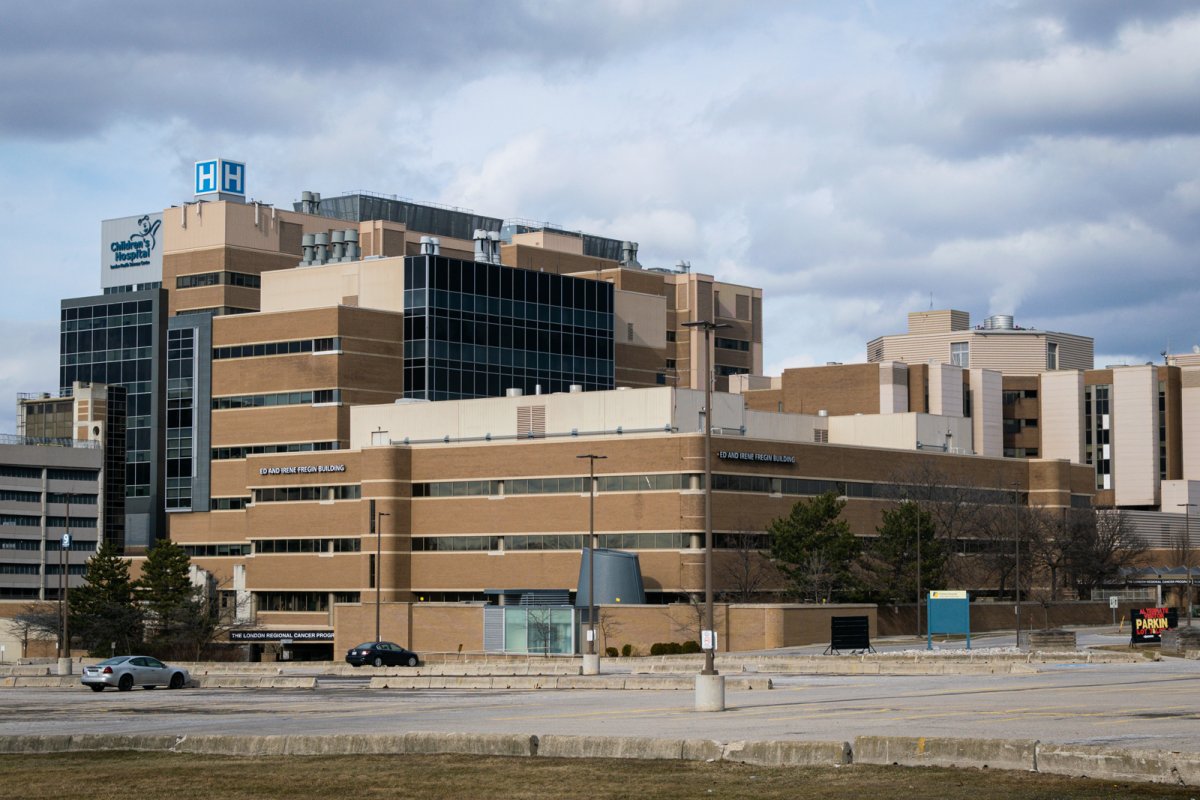A London, Ont., program aimed at preventing hospital patients from being discharged into homelessness is expanding with two new projects that could also help pave the way for province-wide change.

The No Fixed Address strategy will now focus attention on a new and improved system of collaboration with other city groups and agencies as well as on a program tailored specifically to youths aged 16 to 24.
“We have so many different sectors — the health sector, the homeless sector, housing, income support — and for a complex problem like homelessness, we have to work together and have systems in place that allow us to be a team together in order to address this problem,” explained Dr. Cheryl Forchuk.

Forchuk’s research team out of Lawson Health Research Institute developed the NFA strategy roughly three years ago as an extension of some of their previous studies.
According to Lawson, the first phase of the project in acute and tertiary psychiatric care in the London region found that “interventions used prevented homelessness in 95 per cent of cases.”
In September 2018, federal funding was announced as the project began its second phase, which focused on expanding the program to selected medical departments at London Health Sciences Centre.
“Most recently in the studies we just wrapped up, there was two things we learned… The one thing was, even though we were meeting as a team, some of the things like the data and the points of entry weren’t as well coordinated as they could be,” Forchuk said Wednesday.
- Bird flu risk to humans an ‘enormous concern,’ WHO says. Here’s what to know
- ‘She gets to be 10’: Ontario child’s heart donated to girl the same age
- Shoppers faces proposed class action over claims company is ‘abusive’ to pharmacists
- Most Canadian youth visit dentists, but lack of insurance a barrier
One of those youths was Josiah Chalmers, now 25, who experienced homelessness for roughly two years and was hospitalized four times in Kitchener and twice in London during that time, before he secured housing in September 2020.
Chalmers says when the first COVID-19 lockdown began in March 2020 the shelter he was staying in closed.
“So there was a desperate need for housing. I was experiencing a lot of mental health problems at the time, addiction — I had relapsed pretty hard,” he told Global News.
He says he was already on all the waitlists he could be on and so he took the initiative to reach out directly to John D’Oria, the coordinated access manager in the city’s homeless prevention department.
Thanks to collaboration with Youth Opportunities Unlimited, Chalmers says he received a phone call on Aug. 13, 2020 and was housed by Sept. 1.
“When you’re homeless you hear all the time ‘oh, we’ll get you a house within the month’ and it never happens. Or they find you something very, very temporary,” he says.
“It definitely took a lot of shock — like it’s too good to be true almost, right? How could this be happening? It’s been so long and I’ve fought so hard and now that someone’s finally recognizing my story it just feels really validating to be heard.”
Now, Chalmers has a job and pets — some bunnies and a hamster. He even joked that he’s so pleased to have a place to live that he has no issues staying inside amid the pandemic.
“I’ve been in such a socially exhausting situation for so long it’s really nice to just kind of like, being told to not leave my house is a really nice thing. I’m not going to disagree, I will stay inside!”

Forchuk says the project depends on partnerships and collaboration and feedback from a variety of organizations and individuals, including those with lived experiences.
“We have people with lived experience that also participate on our advisory group,” she said.
“That’s how we learned about (this issue) initially was people with lived experience telling us ‘this is how I became homeless.'”
The project focusing on youth homelessness will last three to four years and involve data from 93 youths at three points in time as well as focus groups.
The project will see a custom NFA strategy for youths aged 16 to 24 in partnership with Youth Opportunities Unlimited as well as Children’s Aid Society London and Middlesex. The project is funded by the National Centres of Excellence Making the Shift Youth Social Innovation Lab.

The project focusing on collaboration within the city will last two years and will see a worker with the city’s Coordinated Access Outreach program supporting individuals at risk of homelessness to maintain or obtain housing. Ontario Works will help with income and employment supports and the Salvation Army Housing Stability Bank is available for financial resources as needed.
As part of that project, 106 participants will be interviewed in hospital and again six months later. There will also be focus groups with participants, health-care providers and community partners. The project is funded by the Canada Mortgage and Housing Corporation’s National Housing Strategy.
Forchuk believes that London can lead the way in preventing hospital discharges into homelessness.
“When I start working in this area, the only three papers I found on the topic, academic papers, said that it was a myth, that it didn’t happen. We now are getting evidence it does happen,” she said.
“And what I think we’re going to see is that more communities, when they see the problem, they’ll be more motivated to deal with the problem and we’re already getting requests from other communities.”








Comments